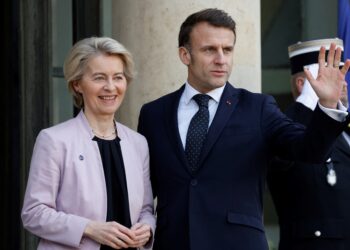Brussels – In just under a month since his (second) inauguration, Donald Trump is already disrupting three years of U.S. foreign policy on Ukraine. As his “negotiating trio” meets with the Russian delegation in Riyadh to test the waters on the Kremlin’s readiness to engage in peace talks, Kyiv is getting nervous because it fears being cut off from discussions about its own future. In the background, Brussels seems doomed to political and strategic irrelevance.
Dialogue in Riad
He promised it, and he is doing it. The 47th U.S. president, Donald Trump, has accelerated the negotiations to reach some settlement of the Russian-Ukrainian crisis, taking the whole world by surprise. This includes Washington’s closest allies (who have tried to run for cover under the impulse of French President Emmanuel Macron, but the confrontation has barely begun) and the Ukrainians themselves, who are now afraid of being excluded from negotiations on the war that has been battering their country for three years.
The White House tenant doesn’t want to waste any time. In Riyadh, the capital of Saudi Arabia, the dream team of the star-studded administration—consisting of Secretary of State Marco Rubio, National Security Advisor Michael Waltz and Special Envoy to the Middle East Steve Witkoff— is meeting with two high-level representatives from Moscow, Foreign Minister Sergei Lavrov and his advisor Yuri Ushakov.Donbas
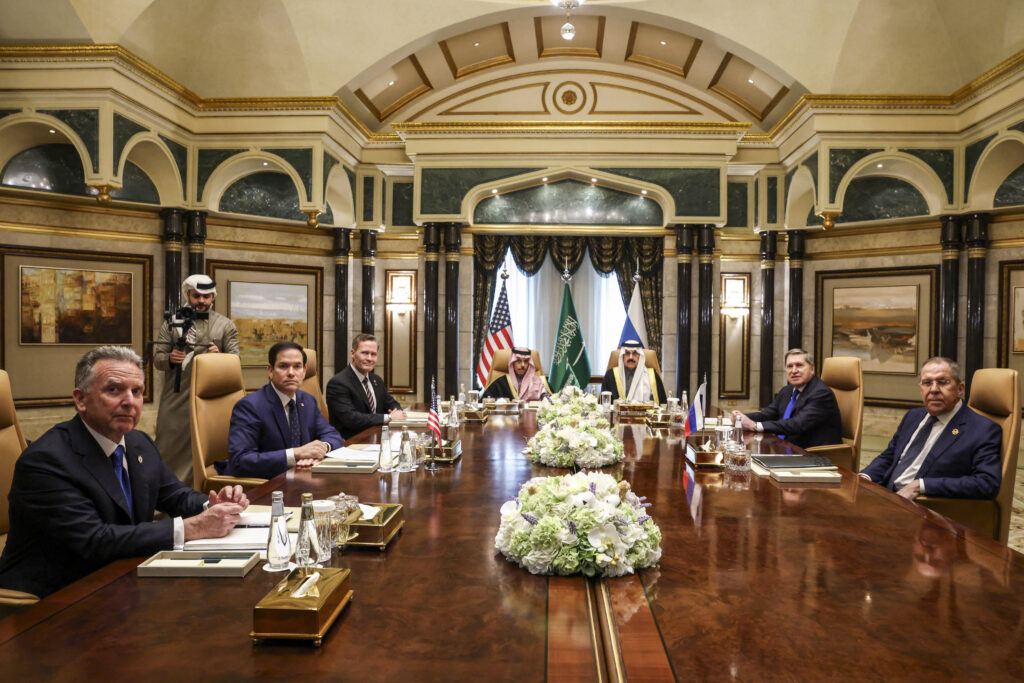
Officially, as stated by Kremlin spokesman Dmitri Peskov, the meeting aims to “restore the full range of U.S.-Russian relations, prepare for possible talks on the Ukrainian issue, and arrange a meeting between the two presidents.” In fact, it serves as a means for Trump to find out the real intentions of his Russian counterpart Vladimir Putin in terms of a willingness to negotiate to bring to a swift conclusion the war he started in 2014 by annexing Crimea and occupying part of the Donbas, and in which in 2022 he made a quantum leap by invading Ukraine on a large scale.
Stepping back on rare earths?
In all this, Volodymyr Zelensky feels cornered. While Washington and Moscow contact teams were landing in Riyadh, he was in Abu Dhabi to meet the leader of the United Arab Emirates, Sheikh Mohammed bin Zayed Al Nahyan.
However, the Ukrainian president’s really relevant speeches were delivered to Western broadcasters during and after the Security Conference last weekend (Feb. 14–16) in Munich. There, Zelensky met, in addition to EU Chief Executive Ursula von der Leyen and European Council President António Costa, U.S. Vice President James David Vance.
With Trump’s number two, Zelensky discussed a potential deal that had been much talked about in previous days. The pact was supposed to provide some pre-emption for Washington regarding access to the rare earths and critical minerals in Ukraine’s subsoil in exchange for a U.S. commitment to ensure Kyiv’s security once a ceasefire with Moscow is signed.
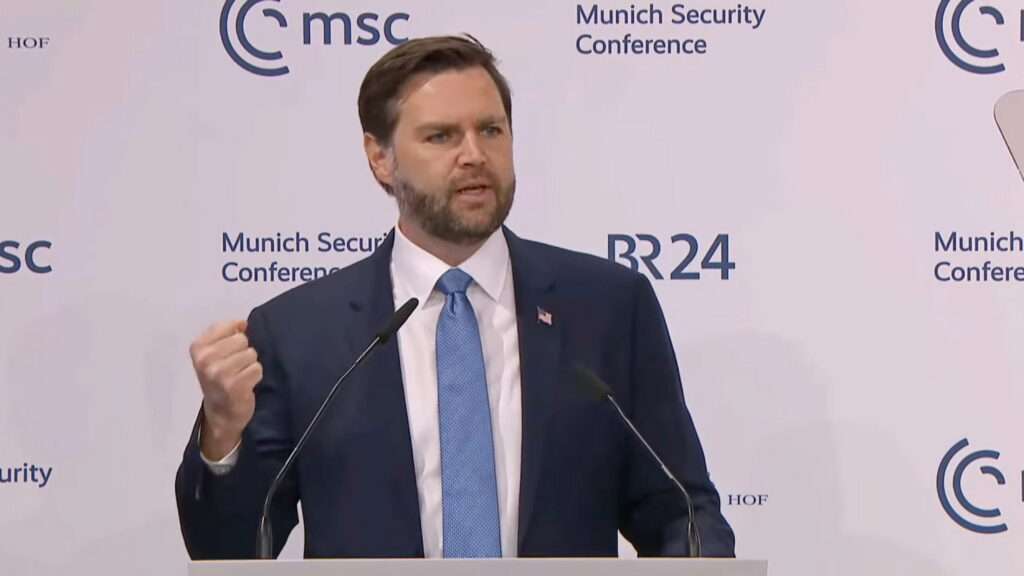
However, the next day, the Ukrainian president stepped back, arguing that the text of the agreement, submitted to him by U.S. Treasury Secretary Scott Bessent, did not offer sufficiently specific security guarantees. A former senior Kyiv official even called it “a colonial agreement,” while Washington officials present in Munich adopted a “commercial mentality.” The same source anticipated that the Ukrainian government is drafting a “counterproposal” to be delivered to the Trump administration. “Help us defend it, and we will gain together,” the Ukrainian leader commented.
Security Guarantees
Talking to NBC News, Zelensky repeated yet again that “I will never accept any decision between the U.S. and Russia on Ukraine” that does not also involve Kyiv. He reiterated that no peace can be genuinely lasting without a concrete commitment from Washington.
He also warned against the speculation circulated in recent days of a withdrawal of U.S. troops from European NATO members as a sign of “good faith” toward Moscow. Putin is a “murderer” and a “terrorist,” he said, and he will not stop in Ukraine but will extend his war into the Old Continent. Starting with those “small countries that were in the USSR“, such as Georgia, Moldova or the Baltics (a possibility, this one, that is recently beginning to circulate even among the intelligence of some European states). If this happens and there is no Uncle Sam umbrella, Zelensky predicts that “Europe will not respond” because “it is militarily weak” and is unable to defend itself.
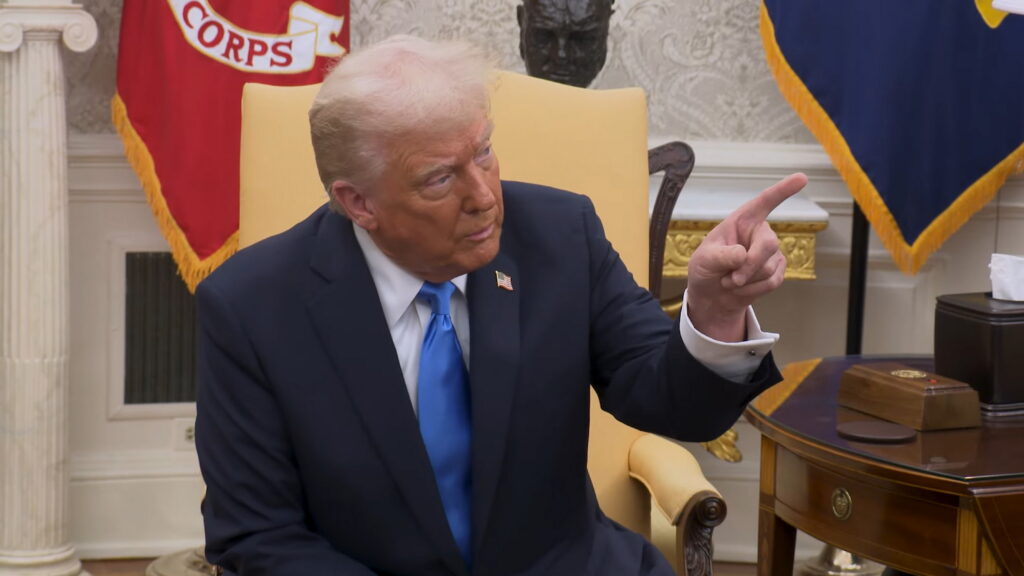
On the issue of the occupied territories, the Ukrainian president stressed that “from a legal point of view”, it is not possible for Kyiv to recognize as Russian the oblast’ in Moscow’s hands. Still, it is possible to grant them “through diplomatic channels” to the Federation to recover them in the distant future. A hypothesis that, he says, would be more solid if Ukraine succeeds in joining the EU and NATO. It is too bad that, at least for the time being, Washington put a (double) tombstone on the latter hypothesis, given the unequivocal comments on the subject by Trump and Pentagon chief Pete Hegseth.
“Afghanistan 2.0”
While some European leaders were gathered at the Elysée Palace to discuss—without concluding anything for the moment—how to equip themselves to take charge of their own destiny now that Washington seems to care less about the international order it helped build 80 years ago, German Ard broadcast another interview with the Ukrainian president, also recorded during the three-day event in Munich.
There, Zelensky warned his Western interlocutors of the risk of “an Afghanistan 2.0”, referring to the chaotic withdrawal of the U.S.-led international coalition troops in August 2021 (withdrawal carried out by Joe Biden’s administration but decided by Trump in his first term). The message is clear: not to capitulate in the face of Putin’s demands—who has long called for the withdrawal of the Atlantic Alliance from states bordering the Federation—to prevent another black hole as in Kabul, now back in the hands of the Taliban.
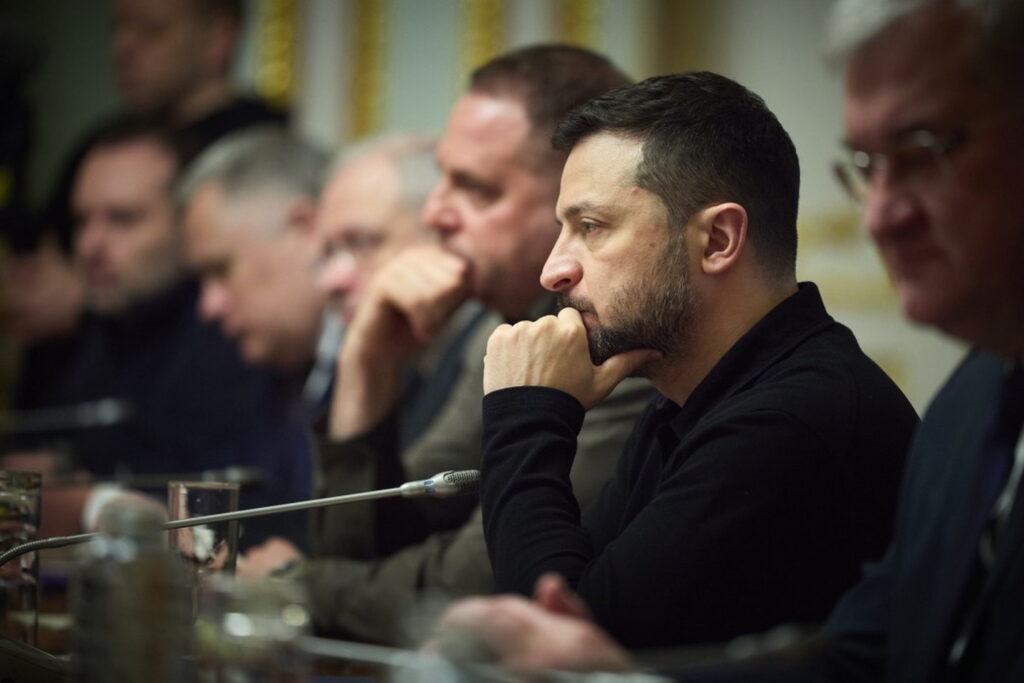
“Americans should be there” on the ground to ensure peace, he reiterated, arguing that this would be “an important demonstration of strength for Putin,” who, Zelensky assured, “is afraid of Trump.” But the problem, he pointed out, lies precisely in the U.S. president’s new approach. It is worrisome, he says, “that the U.S. is saying very pleasant things for Putin,” adding that “they want to please him” with the goal of “meeting and having quick success” in negotiations.
English version by the Translation Service of Withub

